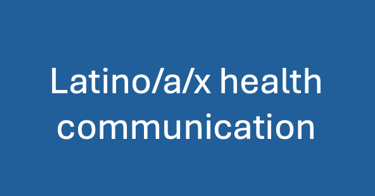Research
Yonaira's scholarship focuses on reducing health inequities and improving the well-being of Latino/a/x and underserved communities through health communication initiatives. Her work seeks to understand the processes that impact access to and quality of health information for Latino/a/x audiences and mechanisms for and determinants to adequately communicate this content through trusted community sources via digital and social media. Yonaira specifically uses qualitatively-driven mixed methods and community-based participatory research to study health misinformation, health promotion, and community engagement. She conducts research in English and Spanish.
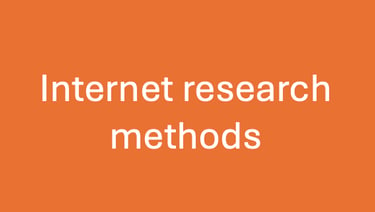

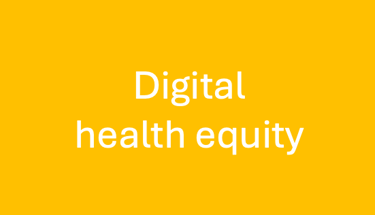

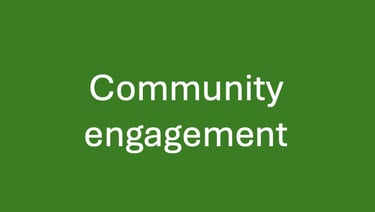

Yonaira's Latino/a/x health communication research suggests that cultural values and other cultural connectors play a salient role in how source and message factors influence health (mis)information engagement, as well as in how they assess information credibility and choose to act upon it. Her applied work ensures materials are developed to meet the unique needs of local communities through the use of health communication best practices.
In an effort to address the constraints of only using quantitative metrics to assess health information engagement on social media, Yonaira developed the social media content and context elicitation method. This mixed-methods approach allows for a better representation of how individuals engage with and assess health (mis)information in reality, and how these interactions influence behaviors.
Yonaira's work to foment digital health equity explores culturally and linguistically-tailored communication across social media platforms, mobile apps, and AI chatbots. This research includes utilizing popular platforms like Facebook and WhatsApp for cancer education among Latino/a/xs, assessing language equity in ChatGPT responses to health-related questions, and developing policy guidelines for multilingual chatbots.
Adequately addressing inequities requires building trust and collaborating with local communities. Through the use of community-based participatory research principles, Yonaira has conducted community needs assessment and delivered capacity building workshops in Puerto Rico in response to Hurricane María. Her current work further explores the role of social media as a trusted communication infrastructure during public health emergencies.
Research Agenda
Team
Rivera's research team comprises highly motivated students and mentees dedicated to excelling in their academic pursuits.
Graduate students and mentees

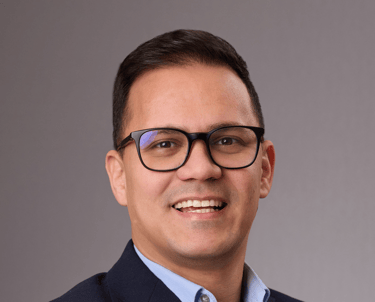
Ben Rholdan S. Pereira
Ben Rholdan is a PhD student in Communication. The focus of his research now lies in health communication initiatives for underserved communities in the global south. His particular interest is in reaching out to those residing in communities within the Brazilian Amazon. He aims to expand his work on preventing tropical diseases among riverside communities in Brazil. He conducts research in English and Portuguese.
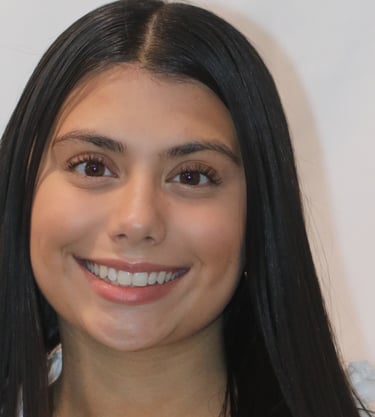

Kaelin Smith
Kaelin is a graduate student pursuing a Master’s in Health Communication and Information (MHCI). Recently, Kaelin earned a Bachelor of Arts in Communication and Psychology from Rutgers University, where she developed a strong foundation in understanding human behavior and effective communication. Passionate about health communication, Kaelin is particularly interested in promoting preventive health behaviors, specifically cancer screenings, and exploring ways to enhance their accessibility and effectiveness.
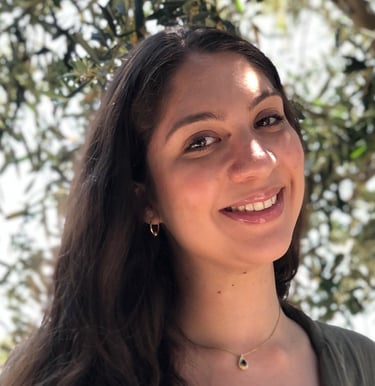

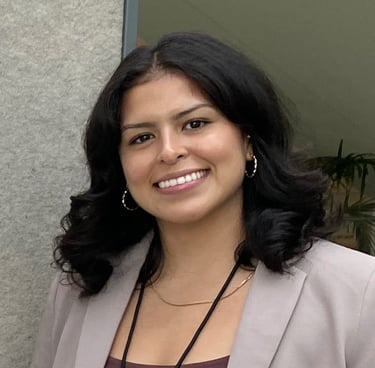

M. J. Salas
M.J. Salas is a PhD student in Communication whose interests reside at the intersection of health and critical, interpersonal communication with a focus on identity. Using transdisciplinary, mixed-methods approaches, they seek to answer research questions about the health and healthcare experiences of racial, ethnic, sexual, and gender minorities. They are motivated to reduce health disparities via community-engaged, culturally-tailored health interventions to affect positive change for minoritized populations and their health.
Nicole Mendoza
Nicole Mendoza is a PhD student in Communication. Her previous research at UC Santa Barbara focused on a stress-resilience-thriving framework regarding the undocumented immigration status of college students. Her current research explores the aspects of culturally grounded interpersonal communication in patient-provider relationships and health inequities among the Latino community. Her work also uses a socio-ecological and intersectional lens to better understand health inequities that exist among populations that have been made vulnerable.
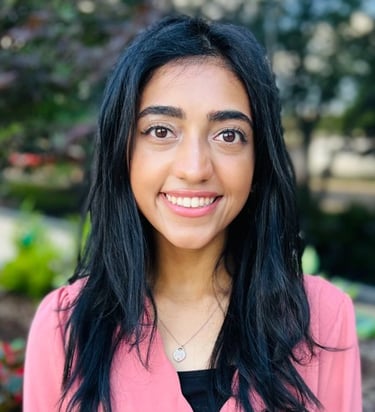

Rupashree Mitra
Rupa received her MHCI in 2023. She currently serves a large list of healthcare clientele in the IT operations field at CDW Logistics, LLC. She is passionate about healthcare administration and operations because it allows her to focus on the efficient management of healthcare services, improve patient outcomes, streamline processes, and ensure that healthcare organizations run smoothly. She finds fulfillment in solving problems and being proactive in decision-making to enhance the quality of care.
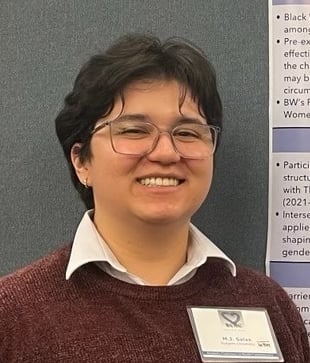

Naomy Azcona
Naomy is a Master of Public Health student dedicated to bridging the healthcare, education, and community sectors to address health inequities. She holds a Bachelor of Science degree in Exercise Science from Rutgers University and has contributed to community-engaged research projects focused on language development among dual-language learners from low-income Latino backgrounds. She is particularly interested in using interdisciplinary frameworks and mixed method approaches to understand and promote literacy development within this community. Her work aims to enlist community outreach initiatives to enhance knowledge and ultimately improve health outcomes.
Undergraduate students
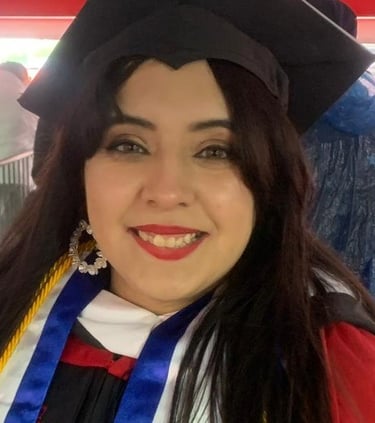

Andee Amaya
BA Communication, 2024
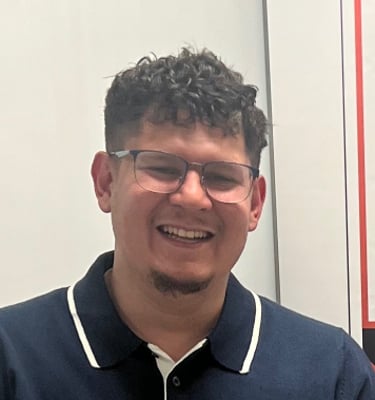

Sergio Ramírez Reyes
BA Communication, 2025
Melissa Mendoza
BS PUBLIC HEALTH STUDIES, 2025
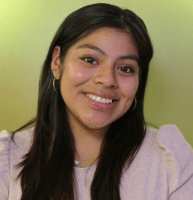

Population Health Fellows
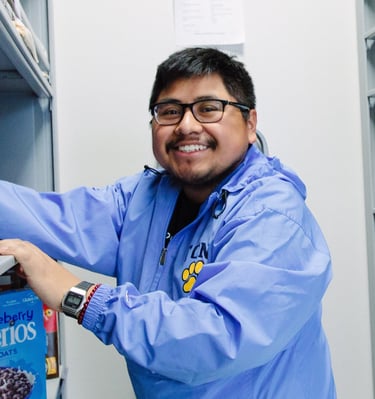

Horacio Hernández Méndez
Horacio is a Population Health Fellow within the Office of Population Health at Rutgers University. He received his Master of Public Health with a concentration in global health from The College of New Jersey, where he also previously completed his Bachelor of Arts in Sociology and Public Health. His previous experiences focused on community engaged learning and addressing social justice issues through his previous roles as an Americorps Member and Member Life Coach with Horizon Blue Cross Blue Shield of New Jersey.

